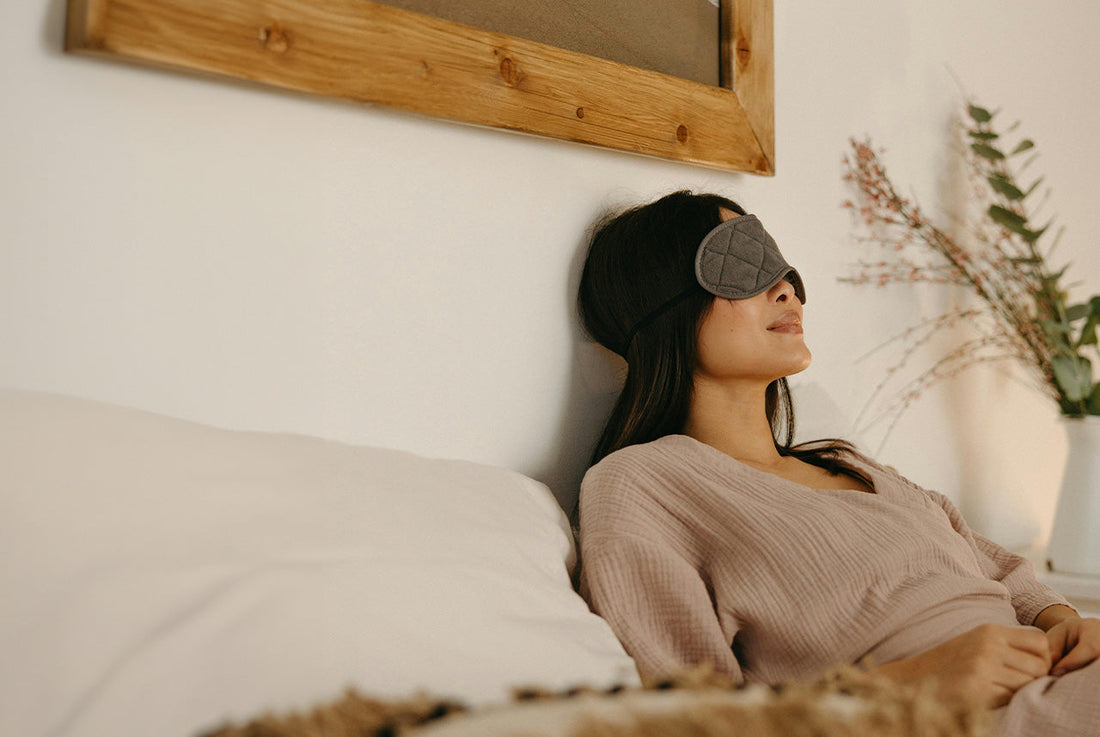
Circadian rhythm: optimising sleep health
Share
Circadian rhythm, also known as your sleep wake cycle, governs the oscillations of sleepiness and wakefulness, but also other integral bodily processes like hunger, digestion, immune function and body temperature[1]. It synchronises our body clock to the external world to ensure our functioning is optimised. This is coordinated by sleep H.Q. also known as suprachiasmatic nucleus, located in the master gland in the brain known as the hypothalamus.
Sweet dreams, sleep tight
Sleep is essential for rest, recovery and healing from the past day. However, it is not just our nervous system that needs some shut eye. Circadian rhythm is important for whole body health. As mentioned before, other body systems also function over a 24-hour cycle like your digestion, detoxification processes and circulatory system. These too rely on your circadian rhythm rest for proper function.[2]
Genetics: the science of sleep
The cogs that keep your body clock ticking over is written into your very own genetics. When exposed to light or dark, certain genes in the suprachiasmatic nucleus are activated which triggers the production of proteins. These act as internal signals controlling the activity of the rest of the body.[3] The abundance of light in our modern world (streetlights, indoor lighting and devices) can compromise this delicate dance and interact with the way our brain knows when it is time to be asleep.
Rhythm disrupters
Although this clock is internally set there are several other aspects of daily living apart from artificial light that can disrupt your schedule to settle in for the night including:
- Night shift working schedules
- Time zone travelling and jet lag
- Eating big meals just before sleeping
- Physical activity just before sleeping
- Uncomfortable temperatures
- Stress
- Poor sleep routine
Some of these factors are a privilege of living in today’s day and can’t be avoided, and that’s ok. Rest assured, there are other routines you can implement that can help reset the cogs and wheels of your body clock.
Schedule sleep
Rewiring your brain is all about routine. It can be hard, but it may help to treat it like a business meeting and show up on time. Setting phone reminders can also assist.
Get outside
Expose yourself to natural light in the morning to support your body’s production of hormones that increase alertness for your get up and go.
Sleep environment
Things that can help sleep hygiene include a blacked-out room, no pets inside rooms or on beds, controlled temperature, supportive mattress, comfortable clean linen.
Unplug
I do have to say it: the doomscrolling isn’t helping your sleep quality. Turn off the tv and swap scrolling in favour of reading that book you said you were always going to.
Journal
If racing thoughts and overthinking is keeping you up at night opt to physically express these on paper. Start simple and write down 3 things you are grateful for that day.
Prioritise physical activity daily
However, avoid strenuous activity 2-3 hours before bed to avoid overstimulation.
It’s important to remember that circadian rhythms are individual, since this schedule is coded into your genes. You might have even noticed some people you know are night owls, and some are larks. Try optimising your body clock by personalising your social schedule or work hours to when you best feel energised.
If sleep is an area where you are looking for a little extra support, then why not try Magnesium Night Plus. This is a delicious Magnesium powder with Californian Poppy and Passionflower. Magnesium supports nervous system function and supports healthy stress response in the body. Passionflower is traditionally used in Western herbal medicine (WHM) to relieve sleeplessness, calm the mind and promote refreshing sleep. Californian poppy is traditionally used in WHM to induce sleep and relieve restlessness. If a powder is not your cup of tea, why not go for Magnesium Night – a convenient tablet with Magnesium, Passionflower and Californian Poppy.
[1] Logan, R.W., McClung, C.A. (2019) Rhythms of life: circadian disruption and brain disorders across the lifespan. Nat Rev Neurosci 20, 49–65. https://doi.org/10.1038/s41583-018-0088-y
[2] Iranzo A. (2022). An Overview on Sleep Medicine. Advances in experimental medicine and biology, 1384, 3–15. https://doi.org/10.1007/978-3-031-06413-5_1
[3] Callaway, E., Ledford, H. Medicine Nobel awarded for work on circadian clocks. Nature 550, 18 (2017). https://doi.org/10.1038/nature.2017.22736
